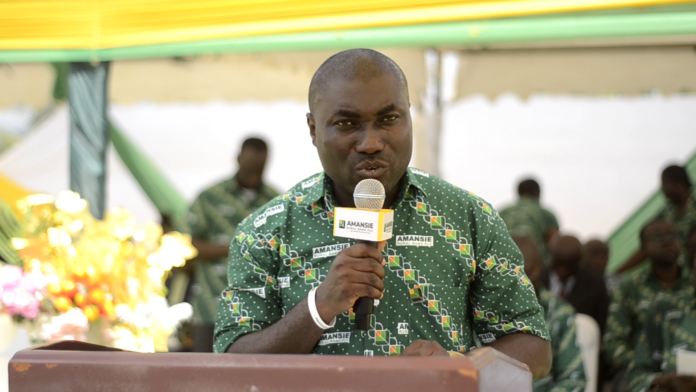Shareholders of Amansie Rural Bank in the Ashanti region are to receive 20% returns on their investments as the bank’s profitability surged following government’s conclusion of the Domestic Debt Exchange Programme (DDEP) with the IMF.
For the past three years, the Bank, despite accruing profits, was unable to pay dividend to its shareholders, owing to the Bank of Ghana’s directive in the implementation of the DDEP.
But after making a significant stride in profits for 2023, Amansie Rural Bank is paying approximately 1.8 million cedis in dividend.
The Amansie Rural Bank is one of the few rural banks in the country approved by the Bank of Ghana to pay dividend to its shareholders after making huge gains.
A total dividend of ¢1,845,944.40, representing GH¢0.050 dividend per share is expected to be disbursed to a total qualifying shares of 36,918,888 by November 4, 2024.
For the 2023 financial year, the Bank of Ghana has requested banks with the capacity to pay dividend to present their financials for approval.
Hamidu Abass has been a shareholder of the bank for over two decades now. The shares, he believes, could turn the fortunes of his family after enjoying years of benefits from saving with the bank.
“I always invest my dividends after they are paid. I have never withdrawn them. I always top-up what I already have. The bank has really been beneficial to me,” he said.

Profit gains
Following the domestic debt exchange program that adversely hit the financial sector, the Amansie bank managed to make a profit before tax of approximately 11.66 million cedis in 2023.
The figure represents an increase of 90.04% compared to the same period the previous year, which recorded nearly 6.14 million cedis.
The bank saw a 43.2% increase in deposits from an initial 232,541,632 cedis in 2022 to 332,993,874.38 cedis for 2023.
The bank attributes the surge in profit to improved incomes generated from its operations, coupled with prudent management of recurrent expenditures on the part of the assigned stakeholders of the Bank.
Chief Executive Officer of the Bank, Frederick Kyei Kwakye, explains the bank had to adopt new strategies to adapt to challenges that befall the sector.
“We were hit by the DDEP. So, we needed to re-strategize and cut down our costs. Lending to the SME unit was short-term and for that we were able to turn the deposits and gained a lot of income,’ he said.
Share Capital
The Bank’s Stated Capital also saw a moderate increase from ¢4.246,469.21 as of December 2022 to¢ 4,494,581.67 in the same period in 2023.
The increase of 5.84% was a result of the sale of Ordinary Shares of 992,449 at Gh¢0.25 per share, amounting to GH¢248,112.25.
Managing Director of the Apex Rural Bank, Alex Kwasi Awuah highlights the effective measures adopted by the rural banking sector for a positive trajectory in the coming year.
“This is a signal of confidence to the rural banking sector, so that many people will be attracted to invest more. This would ensure more capital and the strong solvency, capital adequacy ratio will increase. This is a testament of the strengths of these financial institutions,” he said.
The bank is positive of a strong financial performance for the year 2024, and they work to generate more deposits.

